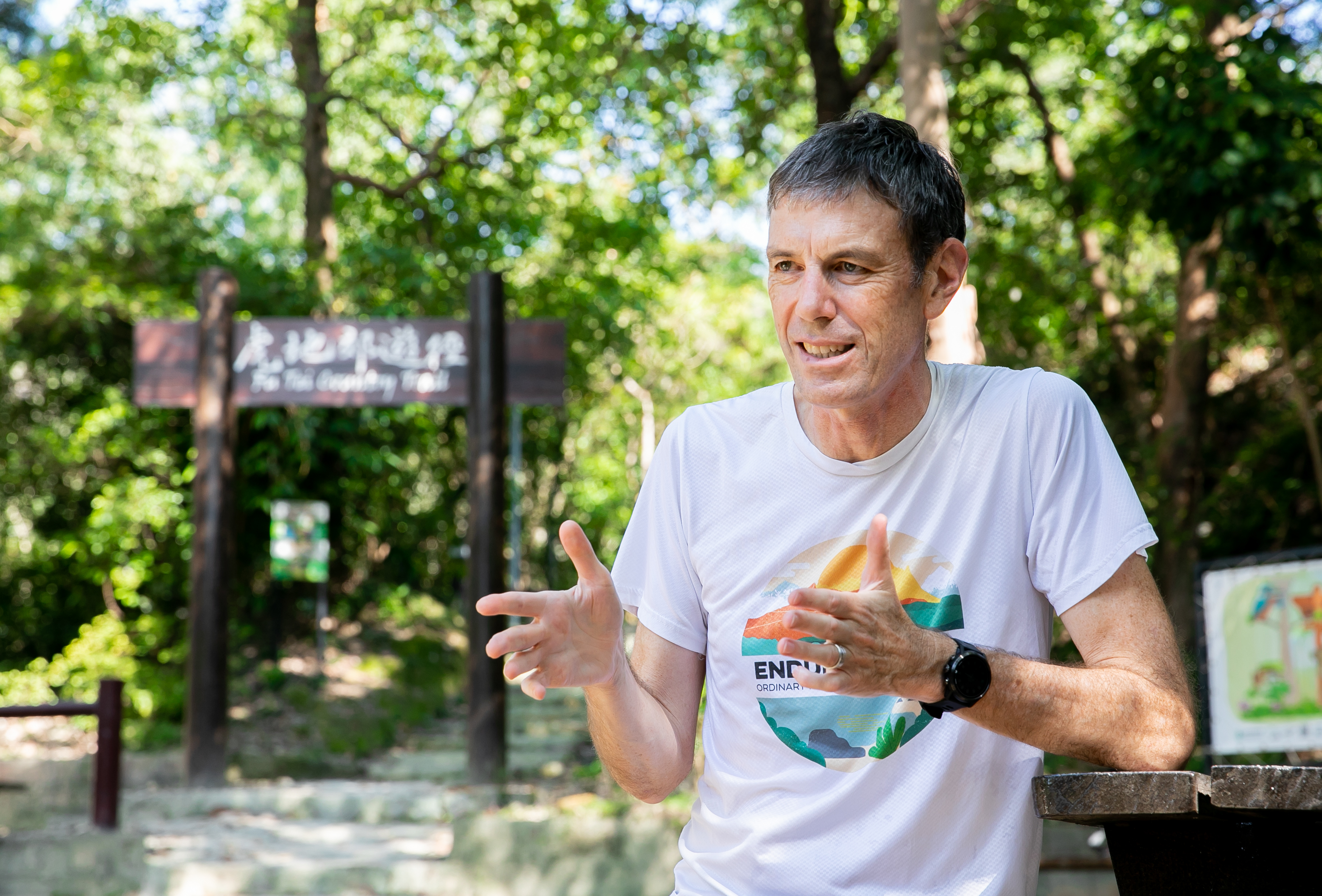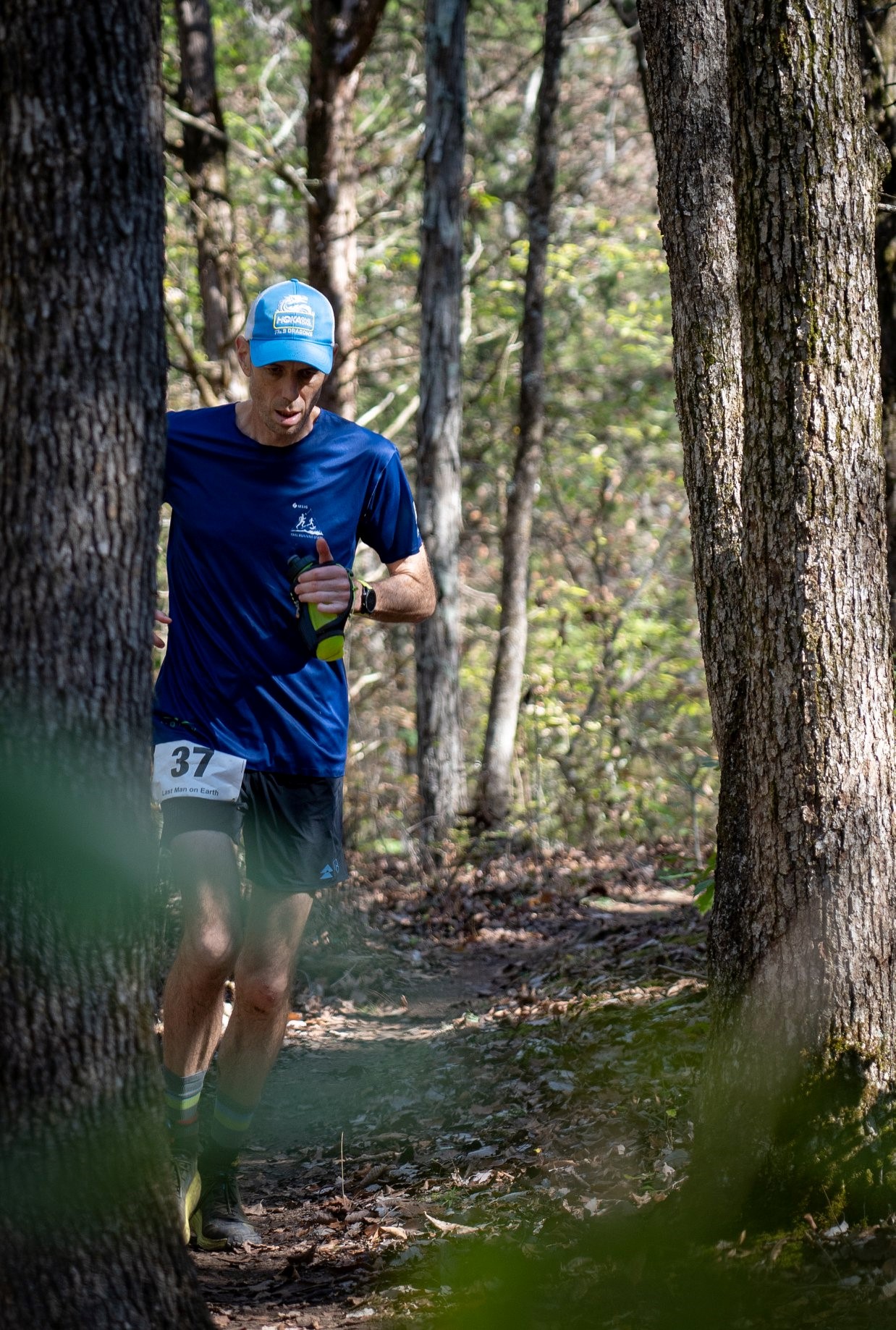
6 minute read
Running the extra mile: A psychologist’s journey into ultramarathons and mental resilience
Text: Ginn Fung
Photos: Hazel Chow
In this interview, Prof William Hayward, Dean of the Faculty of Social Sciences and seasoned psychologist, opens up about his two-decade love affair with running and the unique intersection of his passion with his profession. From exploring Hong Kong’s lush country parks to tackling overseas ultramarathon challenges, Prof Hayward shares insights into his training routine, favourite running spots, and the mental fortitude gained from enduring ultramarathon.
https://www.youtube.com/watch?v=3-5c4h75Kbs
When and how did you fall in love with running in general and ultramarathons in particular?
I have always been quite sporty. When I was a child, I used to like all sorts of sports including running but also football, basketball, and cricket.
And then as I got a bit older and started to have kids, I had much less time, and found running is quite convenient. As I ran, I got to really enjoy it, and I just went on for longer and longer. I ran pretty regularly for about 20 years, and then competed in ultramarathons for about 15 years.
Can you tell us about your training, your running routine?
One thing I love to do is run in Hong Kong’s country parks. One of the amazing things about Hong Kong is all the incredible hiking trails and all the green space, even here near the Lingnan campus. During the week, I may run here in the evenings after work, and I often run from the campus down towards Tin Shui Wai and Yuen Long on the bicycle path. That is the good thing about running - you can run anywhere.
I run after work for about an hour - between 8 and 15km, and then on the weekends I try to run for longer - maybe for a few hours on a Saturday morning - sometimes with friends. We go off exploring, perhaps on Lantau Island or in the Northern Territories - some very obscure places.

If I can overcome difficulties in my running, I can do the same in my job. — Prof William Hayward
Do you have any favourite places or routes?
I enjoy getting out of the city, so any place we can go where it is really the natural environment, and we don’t see too many buildings - and in Hong Kong there are a lot of places like that. So particularly the New Territories, Castle Peak, Tai Mo Shan, or out towards Sha Tau Kok – there are some really good places out there. Lantau Island is fantastic, and I love going out there.
Can you tell us about some of the overseas competitions you have taken part in over the years, and your greatest achievement?
I’ve been to California a couple of times to run the Western States 100
Mile race, which is about 24 hours of running pretty much non-stop. In Hong Kong, the most memorable one is called the Hong Kong Four Trails Ultra Challenge. Hong Kong has four official long trails: the MacLehose Trail is 100km, the Wilson Trail is about 78km, the Hong Kong Trail is 50km, and the Lantau Trail is 70km. And so it’s a challenge when you try to run all four of them together - about 300km in total, and you should do it in under 60 hours. I’ve always taken a little bit over 60 hours, so officially I am a two-time survivor of the Hong Kong Four Trails Ultra Challenge.

Why is it important to have a hobby or passion?
I think it’s very important to not be defined by one thing, so if you only work and don’t do anything else, and then you have a problem at work, then that becomes personalised. You feel that there is a problem because that’s the only thing you know. You know you have a job, and if you are not doing the job well or if there is a problem then that is your problem, and that challenges your mental health, and your general sense of well-being. your general sense of well-being.
So if people have outside hobbies, it just means that you can keep everything a little bit in balance. I find that if I run, then when I’m at work I feel more efficient, and it’s much easier for me to make decisions because I’m able to keep my work a little bit separate from my sense of self, which I think is quite a healthy thing for all of us. You don’t need to be a runner; you don’t need to be sporty - you may play an instrument, or like to paint, or to take photographs - it can be anything, but I think it is very healthy for people to have some kind of interest outside their work.
How does your running relate to your work and to your research?
I think they feed both ways. I’m a psychologist, and the psychology of endurance sports is very interesting because of the motivation to do something which causes pain and discomfort. When I run for many hours, I actually get very sore, and my legs are painful. It’s not really a comfortable thing to do, yet I find it motivating.
So I am motivated to do something that doesn’t seem to bring me joy in the instant, but I think it’s because there is something very satisfying about setting ourselves a challenge and overcoming the challenge. As a psychologist, it is stimulating to understand that, so I find my hobby quite interesting from a professional standpoint. Then, equally, it shows me that I can do more than I thought I could. When I started running I thought those crazy people who run a long way must be very special, but then I realised they are quite ordinary, and just like me. So if I can do that, then when I try something in my professional life and wonder why I can’t - why can’t I apply for that grant, why can’t I teach that course, learn something like a new part of my discipline that I didn’t know before – because if I can do it in my hobby, there is no reason why I can’t do it in my professional life as well. I have also learnt from running that I’m a very stubborn person. It’s always good to learn something about yourself that you can apply in your professional life. And if I can overcome difficulties in my running, I can do the same in my job.




Photos courtesy: Prof William Hayward










